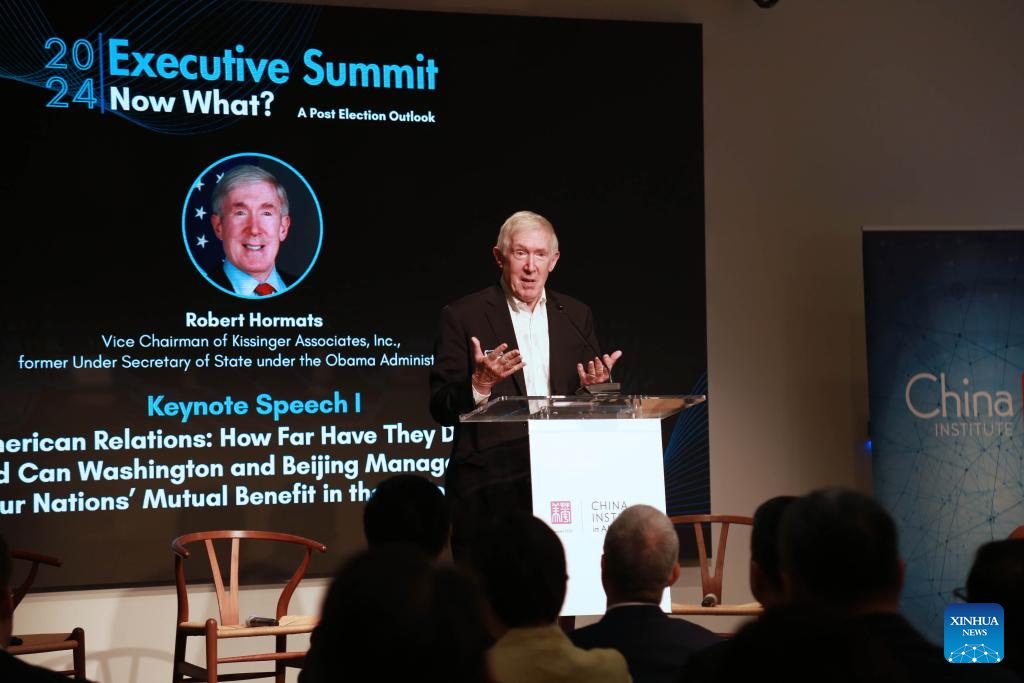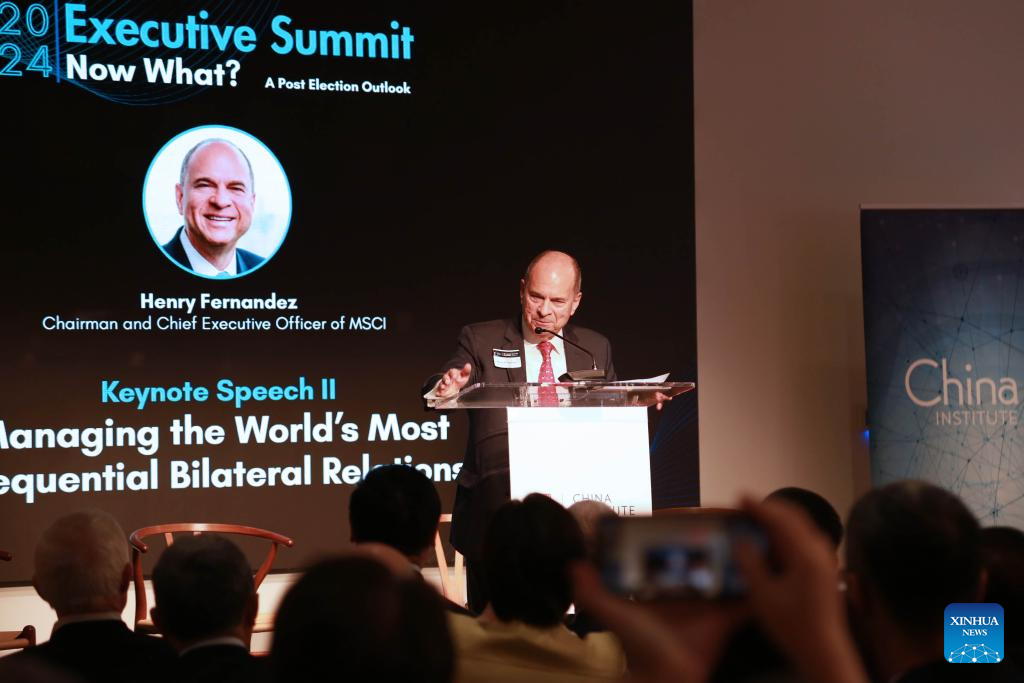
Former U.S. Under Secretary of State Robert Hormats speaks at the China Institute in America's 2024 Executive Summit, in New York, the United States, Nov. 12, 2024. (Xinhua/Liu Yanan)
by Xinhua writers Yang Shilong, Liu Yanan
NEW YORK, Nov. 13 (Xinhua) -- Collaboration remains key to avoiding escalation and building trust, prominent U.S. and Chinese figures in diplomacy, business and finance said on Tuesday.
At the China Institute in America's 2024 Executive Summit themed "Now What? -- A Post-Election Outlook," former U.S. Under Secretary of State Robert Hormats urged renewed "mutual respect" between the United States and China, pointing to the need for small, people-to-people exchanges to help rebuild trust.
"We're all better off in better countries if we're together. We're all worse off if we don't, and that should be something we look at in terms of these smaller issues as well as larger issues," said Hormats, citing the "ping pong diplomacy" in the 1970s as a model for restoring goodwill amid today's strained relations.
"I think between our two countries there's a trust deficit that has developed over the years," he noted, adding that many Americans lack sufficient understanding of Chinese history and culture.
Hormats called for increased educational and cultural exchanges, emphasizing the importance of more Americans studying in China and more Chinese students studying in the United States to foster mutual understanding.
Chen Li, the new Chinese consul general in New York, stressed the economic interdependence between the two nations, calling "decoupling" and "de-risking" "not helpful to gain competitive advantage."
"It is a simple logic that if both sides stop buying things from each other, no one will emerge as winner," said Chen.
"China and the United States are partners, not rivals. We need to stay committed to developing China-U.S. relations," he added.
Chen noted that economic and trade ties between the two nations are mutually beneficial, rather than a zero-sum situation. He likened China's economy to "an ocean, not a pond," expressing confidence in its resilience to support mutual and global growth.
"China-U.S. relations concern the well-being of the people of both countries and the world. It is hoped that we can learn from last week's New York Marathon, in which participants encourage each other toward bettering themselves, and making progress together while celebrating the achievement of respective goals," he said.
Reflecting on decades of economic engagement with China, Henry Fernandez, chairman and CEO of MSCI, dismissed the idea of decoupling as unrealistic, calling it "a dream that's never going to happen."
Fernandez pointed out that trade with China has boosted U.S. purchasing power, particularly for lower-income Americans, and has contributed to global economic stability.
Severing these ties, he cautioned, would have lasting consequences for global prosperity, especially in addressing challenges like climate change.
George Ge, CEO of the China Institute, underscored the organization's mission to foster deeper understanding between the United States and China.
"China Institute is launching a new strategic initiative to foster collaborations with American and Chinese companies in the culturally focused space. While recognizing the challenges in today's U.S.-China relations, we must work together to find constructive dialogues and opportunities," Ge said. ■

Henry Fernandez, chairman and CEO of MSCI, speaks at the China Institute in America's 2024 Executive Summit, in New York, the United States, Nov. 12, 2024. (Xinhua/Liu Yanan)
